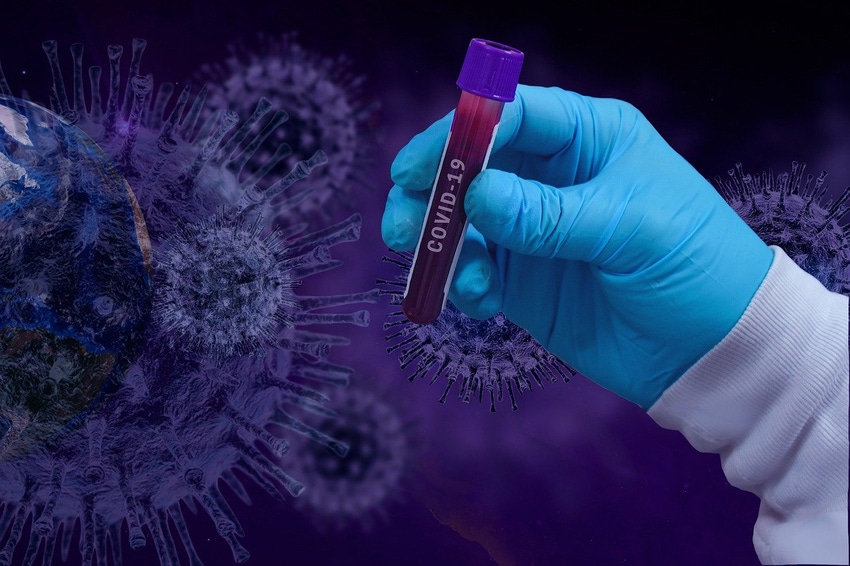FDA Warns of COVID-19 Antibody Testing Limitations
The agency warned healthcare providers on Tuesday that serological tests intended to detect antibodies to SARS-CoV-2 should not be used as the sole basis to diagnose infection. FDA said it does not expect an antibody test can be shown to definitively diagnose or exclude SARS-CoV-2 infection.
April 21, 2020

As more antibody tests become available for COVID-19, FDA wants to be sure people – healthcare providers especially – understand that these tests are not intended to diagnose SARS-CoV-2 infection.
The agency issued a letter warning to healthcare providers on Tuesday explaining the limitations of serological testing and why those tests results should not be used as the sole basis to diagnose COVID-19.
Serological tests (also referred to as antibody tests) are designed to detect antibodies present in the blood when the body is responding to a specific infection, such as COVID-19. These tests are supposed to detect the body's immune response to the infection caused by the virus rather than detecting the virus itself.
According to FDA, experience with other viruses suggests that individuals whose blood contains antibodies associated with SARS-CoV-2 infection—provided they are recovered and not currently infected with the virus—may be able to resume work and other daily activities in society. Serological test results may also help determine who may qualify to donate blood that can be used to manufacture convalescent plasma as a potential treatment for those who are seriously ill from COVID-19. That said, based on the underlying scientific principles of antibody tests, FDA said it does not expect that an antibody test can be shown to definitevly diagnose or exclude SARS-CoV-2 infection.
The agency also explained in its letter to healthcare providers that in the early days of an infection, when the body’s immune response is still building, antibodies may not be present in detectable levels. This limits the test’s effectiveness for diagnosing COVID-19 and is why it should not be used as the sole basis to diagnose COVID-19. Currently authorized serological tests for SARS-CoV-2 measure IgM and/or IgG antibodies. Since IgM antibodies may not develop early, or at all, in infected patients, this type of antibody test is not used to rule out SARS-CoV-2 in an individual. Since IgG antibodies generally do not develop until later, this type of antibody test, even though it is more specific to SARS-CoV-2, is not used to rule-out SARS-CoV-2 infection in an individual either. FDA also said it is not currently known how long IgM or IgG antibodies to SARS-CoV-2 will remain present in the body after the infection has been cleared.
All of this is not to say that antibody tests are not a valuable tool in the fight againt COVID-19. FDA said that this type of test, if used on many patients, may help the medical community better understand how the immune response against the SARS-CoV-2 virus develops in patients over time and how many people may have been infected.
"While there is a lot of uncertainty with this new virus, it is also possible that, over time, broad use of antibody tests and clinical follow-up will provide the medical community with more information on whether or not and how long a person who has recovered from the virus is at lower risk of infection if they are exposed to the virus again," FDA said in the letter.
The tests FDA has authorized, including serological tests, are listed on the agency's emergency use authorization (EUA) page. Tests being offered under a policy outlined in FDA’s COVID-19 Diagnostic Policy Guidance are listed on the agency's FAQ page, however, the agency cautions that such tests have not been reviewed by FDA, unless an EUA has also been submitted and reviewed by FDA.
The bottom line of the letter is that healthcare providers should continue to use antibody tests, as appropriate, so long as they are aware of the limitations. Such tests should not be used as the sole basis to diagnose COVID-19, but instead as information about whether a person may have been exposed. And finally, the agency cautioned that not all marketed serological tests have been evaluated by FDA.
For more of MD+DI's ongoing coverage of resources, regulatory support, and solutions for responding to the COVID-19 pandemic, visit our COVID-19 News Central page.
About the Author(s)
You May Also Like




